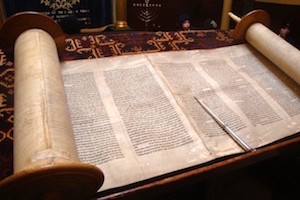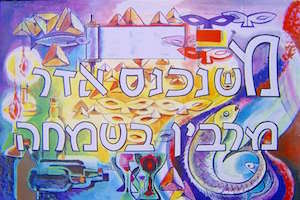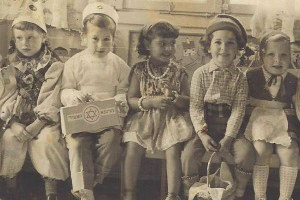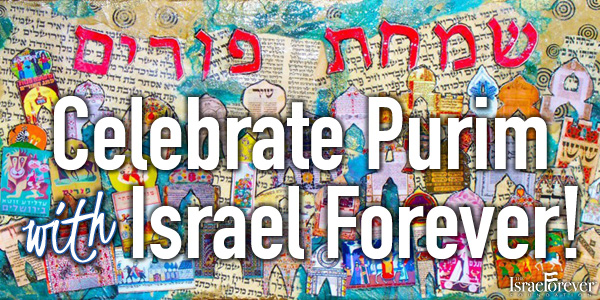Purim: An Order Out of Chaos
By Dasi Fruchter
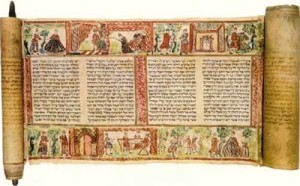
Out of all the Jewish holidays, I’ve always felt the most ambivalent about Purim. I consider myself to be more of a Sukkot or Passover aficionado, serving grand meals under the stars or crafting experiential moments of peoplehood around an elaborately decorated Seder table. I felt something lacking in the apparent disorderly nature and wackiness of Purim. Yet, I can actually weave the narrative of my life through the events that took place on the 14th of the Hebrew month of Adar. What I thought was disorder was actually a path– the path in which I continue to journey as a leader, a learner, and a student at Yeshivat Maharat.
The young Purim. One of my earliest memories happened on Purim. It was in the synagogue social hall as we prepared to read the megillah. I remember the air smelled vaguely like packaged hamantaschen and I was holding a homemade noisemaker in my hand to drown out the name of Haman, who threatened to “to destroy, kill and annihilate all the Jews, young and old, infants and women, in a single day.” I was proudly dressed as Queen Esther, and my five- year-old self bumped into one of my tiny friends. She was also dressed as Queen Esther, and she was wearing a pair of those tiny high heels that you could get at a toy store, a costume princess dress with a tiara, and plastic clip-on earrings that dangled to her neck. She sat on the edge of a chair, her glittery feet dangling off the edge. I looked at her with such admiration, coveting all of her accessories. In my mind, in all of her royalty, she could have been coated in diamonds.
Purim, ten years old. My mother was involved in youth work, and every year she fashioned a fabulous Purim party for teens and their families. That year, however, one of the teens came to the party very, very, drunk–and we needed to stay late to make sure he got home. As an anxious child, I remember pacing back and forth and breathing shallowly as the police came to examine him and look in his car. Why was he lying on the floor and yelling? I felt out of control and frightened. My mother made order out of the chaos–I watched as my mother skillfully dealt with the situation and waited for the teen’s parents to arrive before we left for home. I watched from a distance, admiring, fearing.
Purim after that was always a time of uncertainty. I couldn’t even get my hamantaschen to stay closed in the oven long enough for them to bake. It was a time for competing over how elaborate and creative mishloach manot were and over the extravagance of costumes. It was a time when I could expect an inebriated person to turn up at my door at any moment, wanting to have a laugh. It was a time of uncertainty, unpredictability, and appropriately, upside-down- ness. It was simply nerve-wracking.
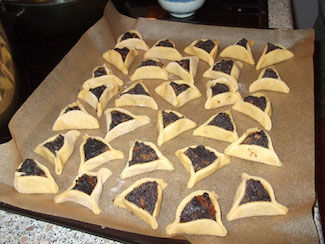
Despite the fact that Purim made my stomach churn, I was still wildly attracted to the holiday and the rich story and to the characters who made my heart race. So when I was choosing something to learn for my Bat Mitzvah, my father suggested we learn the book of Esther with the commentary of the Malbim. I was going to reclaim Purim. Exploring the book of Esther with him was the first time I had done any in depth text learning independent of my schooling, and we happened to be digging deeply into the life of a female protagonist. Out of all the things to study, it was a good choice. I found myself asking crucial questions about my own leadership and when I, like Esther, would choose to take a risk on behalf of a greater cause.
Though my Bat Mitzvah was in December, I was compelled to talk about my experience learning about Esther and the players in the Purim story. Guests came up to me afterwards and complimented my speech, which they said I delivered with poise and grace. I blushed and thanked them, and was surprised that I had done well. I was honored that I could share the Torah I had learned and interpreted with my family and teachers with people I loved.
This leads me to Purim, 12 years old: A mere few months after my Bat Mitzvah, Purim was coming. There had been a megillah reading for women by women at my Orthodox day school, and I decided I wanted to leyn (chant) part of the Megillah, as a part of my own personal commitment to infuse meaning into my own Purim celebration. I had done well at my Bat Mitzvah, and I knew I had something to offer. That morning, the same stomach pain of unpredictability came about again, but this time it was nerves.
Right before the fourth chapter, a mother of one of my friends who was standing at the scroll as it was being read, beckoned me.
“Me?” I mouthed.
“Yes!” She whispered, with a sense of urgency in her facial expression.
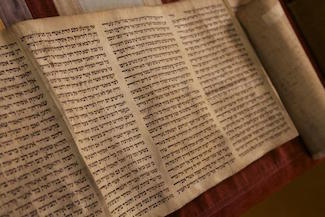
I walked up to the bima at looked at the scroll below me, tinged with faint reds and yellows, with letters dancing merrily all over it. I began to sing the words, and disappeared in the story, among the characters who I had admired, in their heads and hearts and souls. My world was turned upside down, but in the best way possible. It wasn’t predictable, and it wasn’t bad. It required thought and caution, and flipping the paradigm felt important.
Towards the end of my chapter, my throat almost closed from excitement and my eyes blurred for a moment with a new understanding that I loved this work, and that there are indeed spaces to exercise leadership as an Orthodox woman and a spiritual leader. I have been sitting with this feeling ever since, and the world has felt orderly, in a chaotic way. Purim, now. I’m in my second year at Yeshivat Maharat. I lean over ancient texts every day, in addition to having the honor of facilitating educational and spiritual experiences. This year, I’m reading chapter 4 for my congregation, and I look forward to experiencing that same rush of blessing that came over when I led the first time. For the most part, my presence as a Maharat student conveys a sense of excitement and respect. Sometimes, the newness and unexpectedness of the position causes stomachs to churn.
Purim for me has become a moment to turn things upside down and reorder them. To shift paradigms and then to look at ideologies in a new light, amidst the safety of community and tradition. In truth, we have these wild, world-flipping experiences every day, and yet it is on this one day of the Jewish calendar that we notice them and celebrate them. Join me this Purim in embracing the disorder and let us make this holiday a time to aim higher and stretch even farther.

Dasi Fruchter is a student at Yeshivat Maharat and NYU Wagner. She spends most of her time doing faith-based activism, Orthodox feminist organizing, and hosting delicious, extravagant Shabbat meals.

